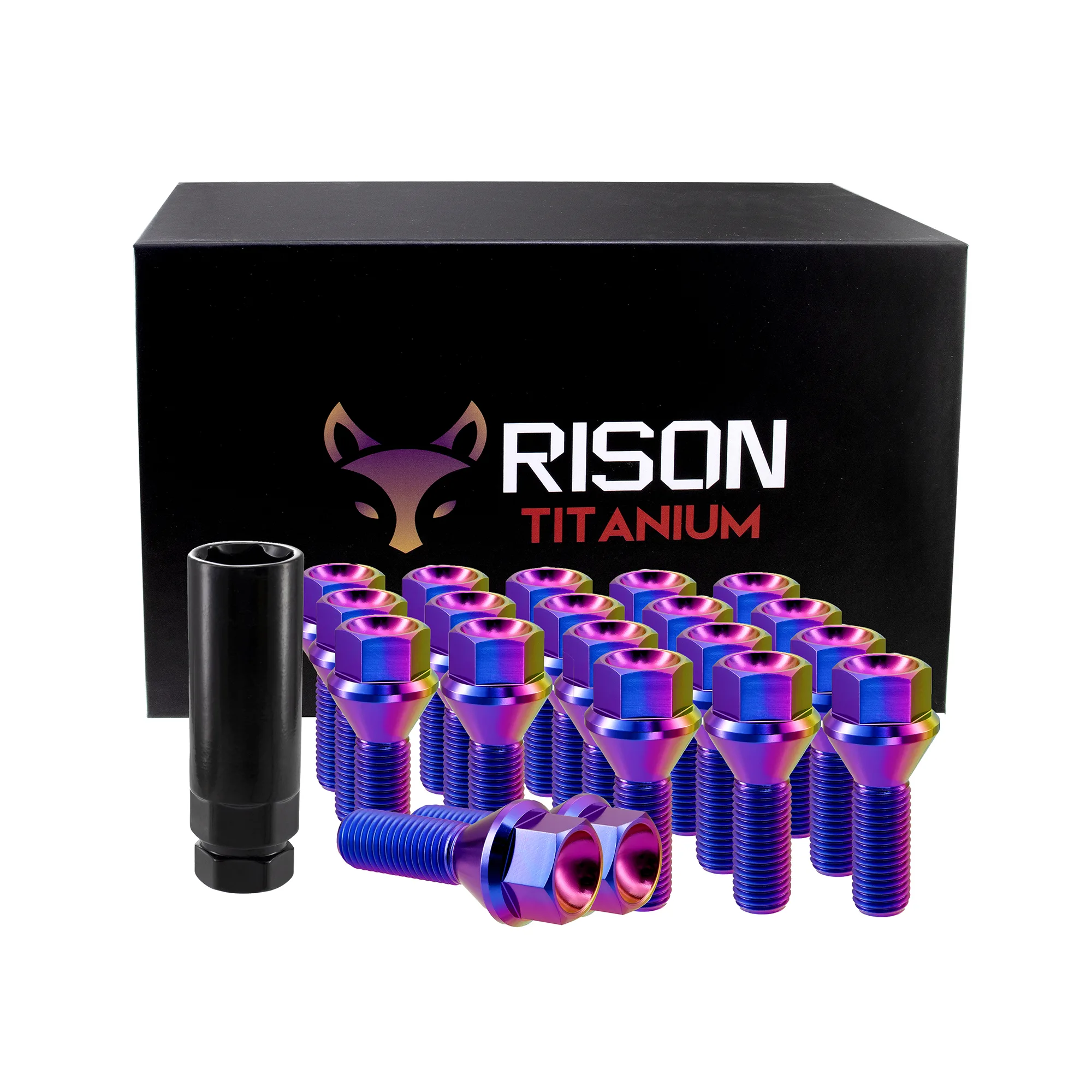
Titanium Bolts vs Aluminum Bolts
When choosing between titanium (Ti) bolts and aluminum (Al) bolts, weight, strength, durability, and cost are major considerations. Below is a detailed comparison for engineering, motorsports, aerospace, and industrial applications.
1. Weight Comparison
| Titanium Bolts | Aluminum Bolts |
|---|---|
| Density: ~4.5 g/cm³ (40% lighter than steel) | Density: ~2.7 g/cm³ (65% lighter than steel) |
| Heavier than aluminum but stronger per gram. | The lightest metal fastener option, ideal for extreme weight savings. |
Winner: Aluminum (for pure weight reduction)
2. Strength & Durability
| Titanium Bolts | Aluminum Bolts |
|---|---|
| Tensile Strength: 900+ MPa (Ti-6Al-4V alloy) | Tensile Strength: 200-400 MPa (6061-T6 alloy) |
| Much stronger than aluminum, closer to steel. | Weaker, prone to stripping, shearing, and fatigue. |
| Fatigue-resistant, good for high-vibration uses. | Poor fatigue life—can fail under repeated stress. |
| Threads resist wear better than aluminum. | Soft threads—easily damaged during installation. |
Winner: Titanium (for high-stress applications)
3. Corrosion Resistance
| Titanium Bolts | Aluminum Bolts |
|---|---|
| Highly corrosion-resistant (immune to rust, seawater, chemicals). | Forms an oxide layer (resists corrosion but less durable than Ti). |
| No galvanic corrosion when paired with carbon fiber or composites. | Galvanic corrosion risk when touching steel or carbon fiber. |
| Used in marine, chemical, and medical applications. | Needs anodizing or coatings for harsh environments. |
Winner: Titanium (best for extreme conditions)
4. Temperature Resistance
| Titanium Bolts | Aluminum Bolts |
|---|---|
| Stable up to 600°C (1112°F) without losing strength. | Weakens above 150°C (302°F)—can deform under heat. |
| Used in jet engines and exhaust systems. | Unsuitable for high-heat areas (e.g., near engines). |
Winner: Titanium (for high-temperature applications)
5. Cost Comparison
| Titanium Bolts | Aluminum Bolts |
|---|---|
| Very expensive (5−5−20 per bolt, depending on size). | Much cheaper (0.50−0.50−5 per bolt). |
| Justified in racing, aerospace, and medical fields. | Used in budget builds, drones, and non-critical parts. |
Winner: Aluminum (for cost-sensitive projects)
6. Best Applications for Each
| Titanium Bolts | Aluminum Bolts |
|---|---|
| ✅ Aerospace & jet engines (high strength + heat resistance) | ✅ Drones & RC models (ultra-lightweight) |
| ✅ Motorcycle/race cars (vibration resistance + weight savings) | ✅ Bicycles (non-stress parts) (e.g., bottle cage bolts) |
| ✅ Marine & submarines (saltwater corrosion resistance) | ✅ Electronics & consumer goods (low-cost fastening) |
| ✅ Medical implants (biocompatible) | ✅ Prototyping & temporary fixtures |
Final Decision: Which One to Choose?
- Use Titanium Bolts If:
- You need high strength + lightweight (e.g., motorsports, aircraft).
- You operate in corrosive or high-heat environments.
- You want long-term durability with minimal maintenance.
- Use Aluminum Bolts If:
- Weight is the #1 priority (e.g., drones, ultralight bikes).
- The application has low stress and vibration.
- You need a cheap, disposable, or non-critical fastener.
Titanium Bolts vs Aluminum Bolts
TL;DR Summary:
- Titanium = Strong, lightweight, corrosion-proof, but expensive.
- Aluminum = Super light, weak, cheap, best for low-stress uses.
What’s more, if you need to know more about Titanium bolts nuts , pls feel free to click Here, Rison Titanium is a very professional company ,we are specialized in the production of Titanium more than 12 years. As well as we are the American Titanium Industry Association Member. Our taitanium bar Quality Inspected Before Shipping and our company Manufacture in Strictly Accordance with ISO9001:2015& AS 9100 :2018.

